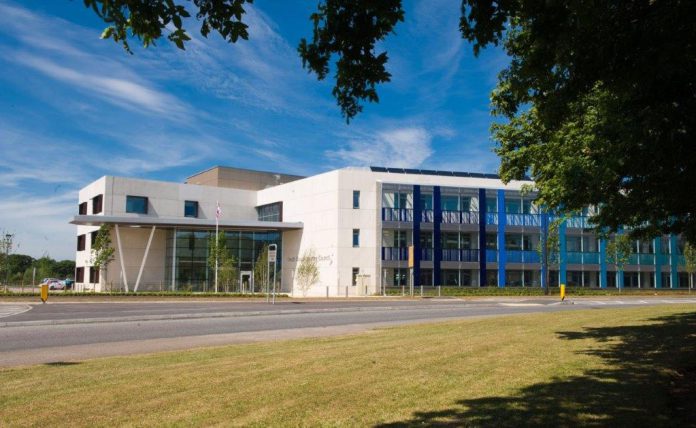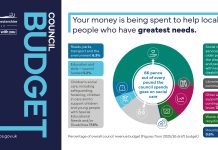South Gloucestershire Council has launched a consultation on its budget for 2025/26, setting out how it will balance the books this year and the year ahead.
However, the consultation also describes how, at the same time as the community continues to experience the cost-of-living crisis, the council’s own costs are continuing to rise rapidly. There is significant and increasing uncertainty about how it will be able to meet its growing costs in future years without seeing a substantial increase in income, either from government grants or council tax rises, or by making real and impactful cuts to services.
While the authority is currently in a relatively good position financially, thanks to having planned ahead with changes to the way it works, and saving more than £100million since 2010, the next two years’ budgets can be balanced by delivering existing savings plans and by spending the council’s reserves.
The consultation sets out the approach the council plans to take in setting balanced budgets into the future, and proposes a number of areas where it could consider changes to the way it works, the services provided and how it generates income.
It sets out a hierarchy of approaches to ensure that no stone is left unturned in minimising costs and providing value for money:
- Challenging what we spend, internally and externally to deliver and support services. This would include a review of our property portfolio and examining whether in the short, medium and long term we need to keep, rent out or sell any assets.
- To find more efficient ways of working. We are keen to identify ways that new technology can help streamline the way we interact with residents and service users, potentially in our contact centres and in social care, we want to explore opportunities not only to save money, but also to improve the customer experience.
- To explore whether it is right and reasonable to continue to take responsibility to pay for and deliver some of the services that are currently provided by or alongside other bodies, such as town and parish councils or the community and voluntary sector.
Given the scale of the potential gap between the councils expected income and the cost of delivering services, however, it is expected that it will need to generate more income, as well as to look at services it is able to cut completely.
The main source of income the council can control is Council Tax. Whilst recognising the financial pressures local people face, each percentage increase in council tax provides approximately £1.9million in additional income each year. This is a much bigger sum than can be raised or saved from any other option being considered through the consultation.
Currently, legislation requires local authorities to hold a referendum if they want to increase the main rate of Council Tax by more than 4.99 per cent (of which 2 per cent is ringfenced to be spent on adult social care). The consultation seeks to understand the public’s views on different levels of increases, including an option of increases of more than 4.99 per cent should legislation be changed to allow them.
Lastly, the council recognises and wants to explain the need to explore stopping, cutting back and prioritising some services and support.
Through the budget-drafting process, the council has prioritised changes that do not impact its ability to deliver services. It is in a relatively financial stable position now, so can minimise cuts in the short term, but this has only been possible because of difficult decisions taken early. Therefore, given the cost pressures and uncertainties around future funding, the council thinks it will need to continue this approach of planning ahead and make some cuts over coming months and years.
Because the financial pressures faced are not immediate, it is not proposing any further cuts to the services delivered directly by the council, through this consultation process.
However, given the uncertainties ahead, it thinks it will need to make some cuts over the coming months and years. Some measures are being investigated now, but more work is needed to evaluate potential impacts, so they will be brought forward and consulted upon separately as appropriate.
Local people have supported the approach taken in recent years to prioritise support on the most vulnerable, for example, children who have had a very difficult start to life, and older people and disabled people who need to rely on the council for social care support. The council will need to prioritise in this way to a greater extent going forward. This means both halting non-core services which are currently subsidised by taxpayers and scaling back or stopping some discretionary services in order to protect essential services supporting those in greatest need. The council is keen to hear from residents though this consultation process about their views on the approaches that should be taken into the future.
Launching the consultation, Council Leader, Cllr Maggie Tyrrell, said: “Every day, South Gloucestershire Council staff are out and about in our communities working to deliver a fairer, greener future for local people. We provide all local government services to residents and businesses, including collecting and disposing of waste and recycling, schools support, social care for adults and children, housing and business support.
“Over recent years, we’ve needed to spend more and more providing direct support to the most vulnerable people in our society. This year (2024/25), we expect to spend £134.3million, or 44 per cent of our net budget, on care for older people, disabled people and people with learning disabilities, and a further £52.1million, or 17 per cent of our budget, on children’s social care, including safeguarding, fostering, children in care and to support children and young people with Special Educational Needs and/or Disabilities.
“Unfortunately, as is the case for councils up and down the country, the rapidly increasing demand for our most expensive support, the rising costs of delivering services, and the year-on-year cuts to central government funding have put unsustainable pressure on our finances.
“There is much uncertainty ahead. As an example, the business rates retention scheme through which the council retains part of the local growth in business rates is due to end in 2025/26. We currently receive around £15million per year from this. The Government has also announced a review of the local government finance and funding system next year, which will likely impact our finances in future years. This makes it difficult right now to be prescriptive about what changes we might need to make over the medium to long term.
“The good news is that in South Gloucestershire, due to our robust forward-planning, we are in a much better financial position than most other local authorities. If we increase Council Tax by 4.99 per cent we can currently deliver a balanced budget for the next financial year. And we are confident that, as things stand currently, through following this same approach and by continuing to use our remaining financial reserves set aside for this purpose, as well as delivering the previous savings we have committed to, we can balance our income and outgoings again for the financial year 2026/27.
“However, the longer-term picture looks less certain. Even after delivering the £40million in savings we agreed as part of the budget signed off last year, our projections show that in four years’ time we will be almost £16million short just to stand still in terms of the services we provide.
“We want to be open and honest with you, there are no longer any ‘easy’ savings to be made. The difficult decisions we’re talking about will mean pain for local people, for our staff and for the partners we work with. We know we’ll need to raise council tax, for example. We’ll need to look at charging for things that might once have been free, and to look at increasing the cost of some of the services we already charge for. And whilst we may be able to hold off doing so in the short-term, we will need to make cuts to some services. None of these are decisions we want to take, but we must face up to the financial reality.
“In this consultation process we are setting out the approach and some of the options we think we will need to follow to remain financially sustainable, and we are keen to hear your feedback.”
Full details of the consultation process, the background and survey questions can be found on our Community Conversations website: https://budget2025.commonplace.is
For those who are not online, paper copies of the survey will be available at our libraries or One Stop Shops.
The consultation will be open from Monday, 11 November 2024 until Wednesday, 8 January 2025.
In addition to running the survey, a number of discussions will be held with key stakeholders, as well as public events that will be held give people the chance to hear more about the proposals and to give their feedback. Details of the public events will be announce locally in due course.
Following the consultation, the views put forward will be fed into a comprehensive report, which will be considered alongside updated financial information to help inform decision-making.
Final decisions and budget setting will take place at Full Council on 19 February 2025.








